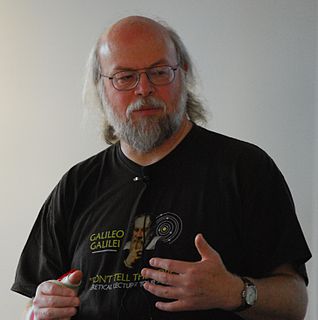A Quote by T. J. MacGregor
Our experiences tend to support our belief systems.
Quote Topics
Related Quotes
If you or I had lived 500 years ago, our worldview, and the decisions we made as a result, would have been utterly different. Our minds are shaped by our social environment, in particular the belief systems projected by those in power: monarchs, aristocrats and theologians then; corporations, billionaires and the media today.
When the United States cannibalize dollars from the defensive business of the NSA, securing our communications, protecting our systems, patching zero-day vulnerabilities, and instead we're giving those dollars to be used for creating new vulnerabilities in our systems so that they can surveil us and other people abroad who use the same systems.
































